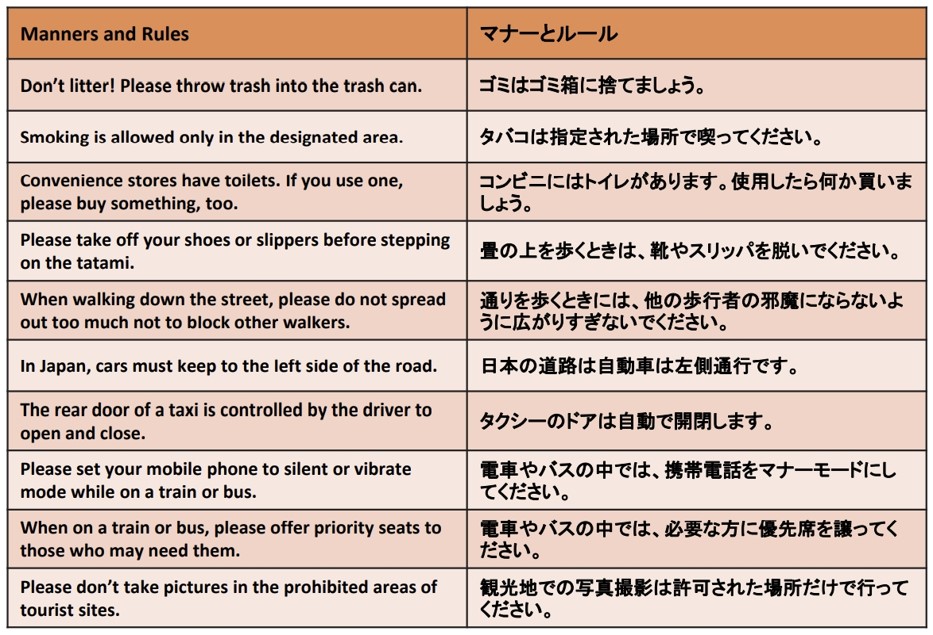- マナーとルール
G:What do you say when you start eating in Japan?
I:Meals in Japan traditionally begin with the word itadakimasu.
G:What do you say when you finish your meal in Japan?
I:Japanese people use the polite phrase gochis?sama-deshita.
G:Please tell me about bowing in Japan.
I:Bowing is probably the feature of Japanese etiquette that is best known outside Japan.
I:Basic bowing are performed by bending from the waist with the back and neck straight,
and the eyes looking down.
G:Please tell us about Japanese religion.
I:Shinto is as old as Japanese culture, and Buddhism was introduced from Korea in the 6th century.
I:The average Japanese person typically follows the religious rituals at ceremonies like births,
weddings and funerals.
G:How do you participate in religious events?
I:They may visit a shrine or a temple at New Year and participate to local festivals,
most of which have a religious background.
客:日本で食事を始める時に何と言いますか?
私:日本の食事は伝統的に「いただきます」という言葉で始まります。
客:日本で食事を終えた時に何と言いますか?
私:日本人は丁寧に「ごちそうさまでした」と言います。
客:日本のお辞儀について教えてください。
私:お辞儀は、おそらく日本国外で最もよく知られている日本のマナーの特徴です。
私:基本的なお辞儀は、背中と首を真っ直ぐにして腰から曲げ、目線を下げます。
客:日本の宗教について教えてください。
私:神道は日本の文化と同じくらい古く、仏教は6世紀に韓国から伝えられました。
私:平均的な日本人は通常、誕生、結婚式、葬儀などの儀式で宗教的な儀式に従います。
客:どのような形で宗教行事に参加するのですか?
私:彼らは新年に神社やお寺を訪れ、地元の祭りに参加することができます。
